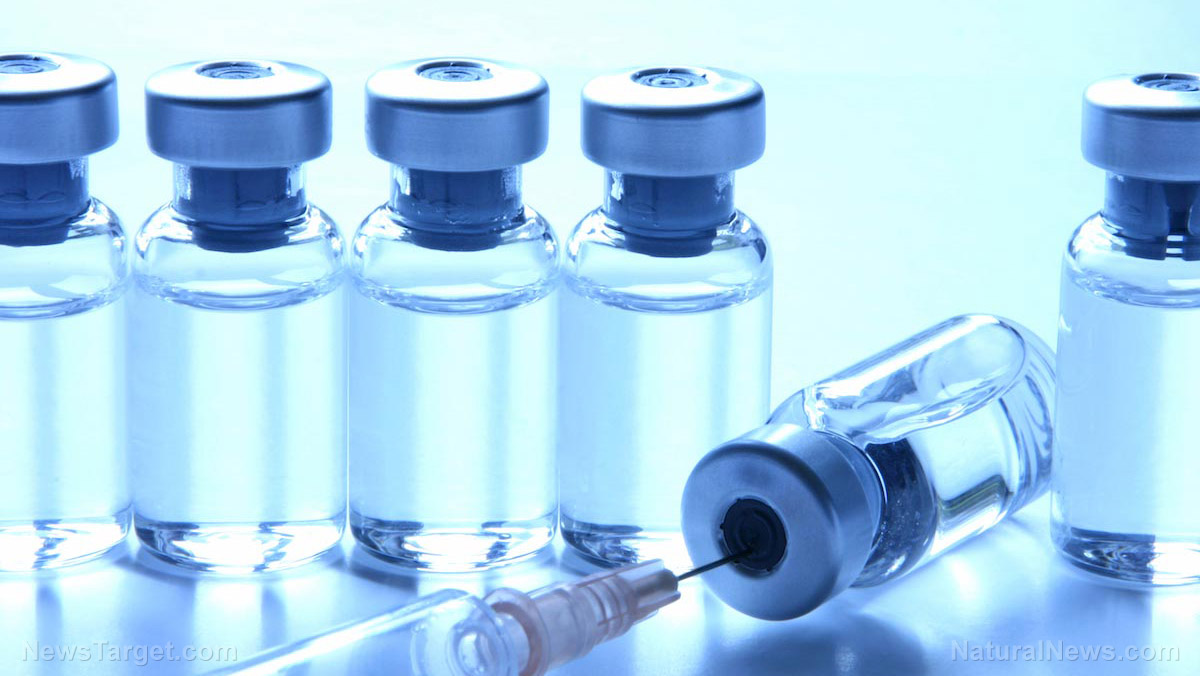Sweden, Denmark halt use of Moderna’s COVID-19 vaccine for younger age groups
10/07/2021 / By Nolan Barton

Sweden and Denmark announced on Wednesday, Oct. 6, that they will pause the use of Moderna’s Wuhan coronavirus (COVID-19) vaccine – also known as Spikevax – for younger age groups following reports of possible cardiovascular side effects.
The Public Health Agency of Sweden says it will stop using the vaccine for people born in 1991 and later as data points to an increase of myocarditis and pericarditis cases among vaccinated youths and young adults.
Myocarditis is a condition that involves inflammation of the heart muscle. Symptoms can include fever and fatigue, as well as shortness of breath and a very specific type of chest pain. Patients tend to say their chest hurts more when they lean forward. The pain tends to subside when they lean back. Pericarditis, on the other hand, is the swelling and irritation of the thin, sac-like tissue surrounding the heart.
“The connection is especially clear when it comes to Moderna’s vaccine Spikevax, especially after the second dose,” the health agency says.
Anders Tegnell, Sweden’s chief epidemiologist, says that the health agency will continue to “follow the situation closely and act quickly to ensure that vaccinations against COVID-19 are always as safe as possible and at the same time provide effective protection” against the disease.
In Denmark, the Danish Health Authority says that people under the age of 18 will no longer be offered the Moderna vaccine out of precaution.
Reuters reported in August that health officials in the U.S. are reviewing reports that Moderna’s COVID-19 vaccine may be linked to a higher risk of heart condition in younger adults than previously thought.
The review has focused on Canadian data suggesting that there might be a 2.5 times higher incidence of myocarditis in those who get the Moderna vaccine compared with Pfizer’s vaccine, especially in men below the age of 30. (Related: Data shows 2.5 times higher risk of myocarditis with Moderna vaccine.)
Data suggests reported cases of heart inflammation are relatively higher after Moderna’s vaccine compared with the Pfizer vaccine, Canadian health officials have said.
Although both vaccines are based on mRNA technology, each dose of Pfizer only contains 30 micrograms of vaccine while each dose of Moderna contains 100 micrograms. Data from one of two U.S. vaccine safety monitoring databases has also suggested that Moderna’s vaccine may carry a higher risk of myocarditis among young people.
Heart inflammation linked to mRNA vaccines
The Food and Drug Administration (FDA) has added a warning to Pfizer and Moderna mRNA vaccines about their possible link to cases of myocarditis and pericarditis in teenagers and young adults.
The Advisory Committee on Immunization Practices (ACIP), vaccine advisory group of the Centers for Disease Control and Prevention (CDC), has also noted that the risk of myocarditis or pericarditis following vaccination with the mRNA-based vaccines in adolescents and young adults is notably higher after the second dose and in males.
In June, the CDC said a higher-than-expected number of young men had experienced heart inflammation after their second dose of the mRNA COVID-19 vaccines, with more than half the cases reported in people between the ages of 12 and 24.
The higher-than-expected rate of myocarditis cases among Americans below 30 is consistent with the data from Israel.
Israel’s Ministry of Health identified over 200 cases of myocarditis in men between 16 and 30 years old, a vast majority of those happening at the younger end of that range. That equates to a risk of between 1 in 3,000 and 1 in 6,000 of suffering from heart inflammation.
Meanwhile, the sets of data collected from two other Nordic countries show that there is a suspicion of an increased risk of heart inflammation when vaccinated with Moderna’s COVID-19 vaccine. The preliminary data from the Nordic study has been sent to the European Medicines Agency‘s (EMA) adverse reaction committee.
Norway already recommends the Comirnaty vaccine to minors. On Wednesday, it said that side effects may be more frequent for boys and young men – and mainly after receiving a second dose. “Men under the age of 30 should also consider choosing Comirnaty when they get vaccinated,” Geir Bukholm, head of infection control at the Norwegian Institute of Public Health, says in a statement.
A Finnish health official says Finland is expected to publish a decision on Thursday, Oct. 7. The EMA approved the use of Comirnaty in May, while Spikevax was approved for children over 12 years old in July.
Cardiologist: No case of myocarditis is mild
Public health officials are still trying to downplay the increasing number of heart inflammation cases following COVID-19 vaccination. They insist that those cases are mostly mild. However, a cardiologist who has treated a boy suffering from myocarditis after getting vaccinated against COVID-19 told the child’s mother that “no case of myocarditis is mild.”
On May 12, 14-year-old Aiden Jo received his first dose of Pfizer’s COVID-19 vaccine. Less than a month later, he woke up in the middle of the night complaining of chest pain and difficulty breathing. The boy’s mother, Emily, rushed him to the hospital where he was ultimately treated for myocarditis.
Emily says she had been under the impression that the adverse effects of COVID-19 vaccines are rare and mild.
“What they didn’t explain is that mild means hospital care and follow-up care indefinitely,” Emily tells activist group Children’s Health Defense. “They’re not explaining what mild myocarditis means. Aiden’s cardiologist told us no case of myocarditis is mild. That’s like saying a heart attack is mild.”
Aiden is now forced to sit out gym activities, skip recess and avoid running around and playing outside with his friends due to how easily he gets tired and how poorly his heart can handle the stress of activity. His mother also faces thousands of dollars in medical care. (Related: Exclusive: Athlete who recovered from COVID facing ‘very different future’ after second dose of Pfizer vaccine triggers myocarditis.)
“Parents need to understand that myocarditis is not covered under the National Vaccine Injury Compensation Program,” says Emily.
“And the Countermeasures Injury Compensation Program only covers if you’re incapacitated, wheelchair-bound or dead. We have incurred thousands and thousands of dollars in medical bills. We have insurance but they don’t pay all. It does not account for tests down the road that we still have to get.”
Myocarditis reduces your heart’s ability to pump and can cause rapid or abnormal heartbeats. Severe cases of myocarditis can lead to heart attack, stroke, heart failure and sudden cardiac arrest.
Follow Immunization.news for more news and information related to coronavirus vaccines.
Sources include:
Tagged Under: adverse effects, Big Pharma, Blood clots, Cardiac Arrest, cardiovascular side effects, coronavirus, covid-19, COVID-19 vaccine, heart attack, heart condition, heart failure, heart inflammation, mRNA technology, mRNA vaccine, myocarditis, pericarditis, spike protein, stroke, vaccine damage, vaccine injury, vaccine wars, vaccines
RECENT NEWS & ARTICLES
COPYRIGHT © 2017 MEDICAL EXTREMISM





















